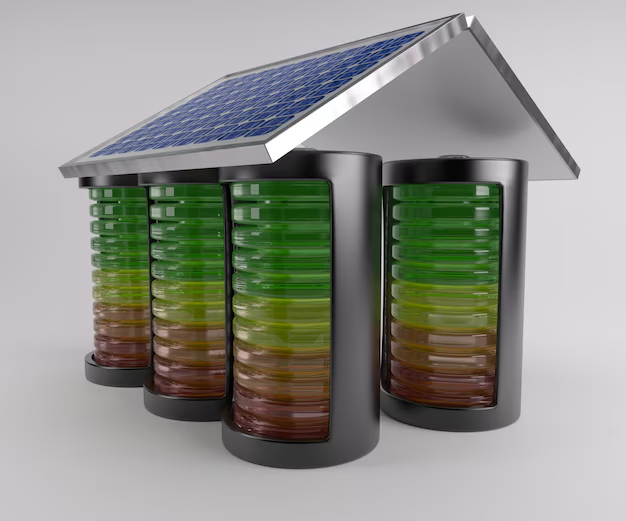As solar energy adoption grows rapidly, one component stands out for its functionality and future readiness: solar batteries. These energy storage systems transform solar panels into round-the-clock power sources, making solar energy reliable, convenient, and practical. In 2025, solar batteries are smarter, more affordable, and increasingly essential for modern energy solutions—whether at home, for business, or on the go.
What Are Solar Batteries?
Solar batteries are rechargeable units designed to store surplus energy generated by solar panels. When solar power production exceeds consumption, the excess is stored in the battery and drawn upon during nighttime, cloudy days, or power outages. This capability overcomes one of solar power’s main limitations—intermittency—ensuring energy is available when you need it most.
Why Solar Batteries Matter Right Now
1. Energy Independence
In an age where grid reliability is not always guaranteed, storing solar energy means your home stays powered even during outages or disruptions.
2. Cost Savings
By storing and using solar energy during peak-rate periods (when utility costs spike), homeowners can significantly lower their electricity bills.
3. Emergency Backup
From storms to outages, solar batteries ensure essential devices and appliances stay powered without reliance on noisy or polluting generators.
4. Eco-Friendly Living
Using solar batteries maximizes renewable energy utilization and reduces reliance on fossil-fuel-generated grid electricity.
5. Portable Power Options
Many solar battery systems are compact and modular, making them perfect for campers, travelers, and off-grid enthusiasts.
Features to Consider in Solar Batteries
When choosing solar batteries, consider these essential features:
- Capacity (kWh): Indicates how much energy can be stored—higher capacity equals longer runtime.
- Depth of Discharge (DoD): Higher DoD means more usable capacity without diminishing battery health.
- Cycle Life: The number of times a battery can be charged/discharged before its capacity drops.
- Battery Type: Lithium-ion offers efficiency and durability, while lead-acid is cheaper but less durable.
- Integrations: Ensure compatibility with your solar inverter and monitoring systems.
- Warranty: Look for substantial coverage (ideally 5–10 years) to ensure peace of mind.
Types of Solar Batteries
- Lithium-Ion – Lightweight, efficient, high DoD—ideal for most modern setups.
- Lead-Acid – Cheaper upfront, heavier, and with shorter lifespans—still viable for lower-cost use.
- Saltwater & Flow Batteries – Eco-friendly and recyclable, but they’re less common and more experimental.
Benefits of Solar Batteries
Here are some main benefits of solar batteries.
- 24/7 power access—even when the sun isn’t shining
- Lower utility bills by using stored energy during peak hours
- Quiet and safe—no fumes or generators involved
- Environmentally conscious solution, reducing carbon footprint
- Scalable—expand storage by adding more battery modules
Who Benefits Most from Solar Batteries?
- Homeowners seeking energy resilience and cost savings
- Small Businesses that depend on uninterrupted power
- Outdoor Enthusiasts & Campers needing reliable, portable energy
- Eco-conscious Users aiming to reduce environmental impact
- Remote Workers requiring dependable energy off-grid
Solar Batteries vs. Traditional Gas Generators
| Feature | Solar Batteries | Gas Generators |
| Emissions | Zero | High |
| Noise | Silent | Loud |
| Indoor Safety | Safe | Risky |
| Fuel Requirement | None, rechargeable | Requires constant fuel |
| Long-Term Cost | Low (renewable, low maintenance) | High (fuel and maintenance) |
Tips to Maximize Battery Life
- Avoid Deep Discharges: Keep discharge levels above 20% to extend battery life.
- Optimal Temperature: Keep batteries in cool, shaded areas to maintain performance.
- Balance Usage: Use power during lower-demand periods or distribute loads evenly.
- Monitor Regularly: Use system dashboards or smartphones to track usage and performance.
- Use Quality Equipment: Use proper inverter control and wiring for safety and efficiency.
Final Thoughts
In 2025, solar batteries are no longer optional—they’re essential for maximizing solar’s potential. From delivering energy independence and cutting costs, to reducing environmental impact, they stand as key components of modern, resilient energy systems. Whether powering a home, off-grid cabin, or weekend getaway, solar batteries ensure clean, reliable power whenever you need it.
FAQs
Q1: How long do solar batteries last?
Most lithium-ion solar batteries last 5–15 years with proper maintenance.
Q2: Can they power my whole house?
Yes, depending on capacity and energy usage. Larger-capacity batteries support extensive home systems.
Q3: Are solar batteries expensive?
While the initial investment is higher, utility savings and energy security make them cost-effective over time.
Q4: Do they require solar panels only?
No. Solar batteries can recharge from solar panels or the grid, offering flexibility.
Q5: How many batteries are needed?
Sizing depends on your energy needs and desired backup duration—consult energy usage metrics for accuracy.








